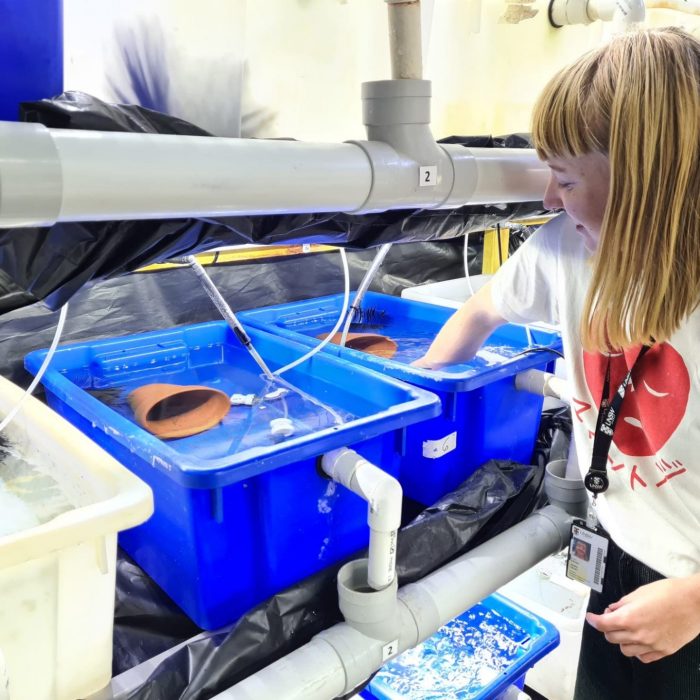Our research

Living Seawalls
The Living Seawalls project aims to enhance the ecological value of artificial structures in the marine environment such as seawalls and pilings. We are currently assessing the ecological benefits of scaling up greening interventions on coastal infrastructure by adding different types of habitat-enhancing units to seawalls, pilings and breakwaters in Australia and worldwide.


Artificial Light at Night
More than 22% of the world’s coastlines are exposed to artificial light at night (ALAN). Despite increasing evidence of the immediacy, severity and the phylogenetic breadth of night-time lighting impacts, ALAN is expected to increase globally in both intensity and spatial extent. However, the potential impacts of this emerging threat on the overall ecology of coastal communities are still largely unknown. We're working to address these knowledge gaps by assessing how ALAN affects the overall diversity and functioning of coastal urbanised systems, and how it interacts with other stressors such as warming.
Impacts of human activities and multiple stressors
Anthropogenic stressors are increasingly impacting marine environments, often with two or more stressors occurring simultaneously. For example, ocean warming caused by climate change and the proliferation of artificial structures and increased pollution from rapid urbanisation are major stressors to coastal habitats around the globe. However, most studies continue to focus on the impacts of a single stressor, which ignores the potential interactive effects of stressors. We're working to determine the impacts of emerging stressors on coastal habitats, and also how multiple stressors affect the resilience and functioning of marine and freshwater communities.


Solutions and management
As human impacts continue to increase in marine environments, it's essential to understand how these stressors impact the marine environment and develop evidence-based solutions for restoring and rehabilitating marine ecosystems. Our research into solutions and restoration includes projects working on active restoration or eco-engineering projects, research into the effectiveness of restoration over time, and research into improving coastal management.
